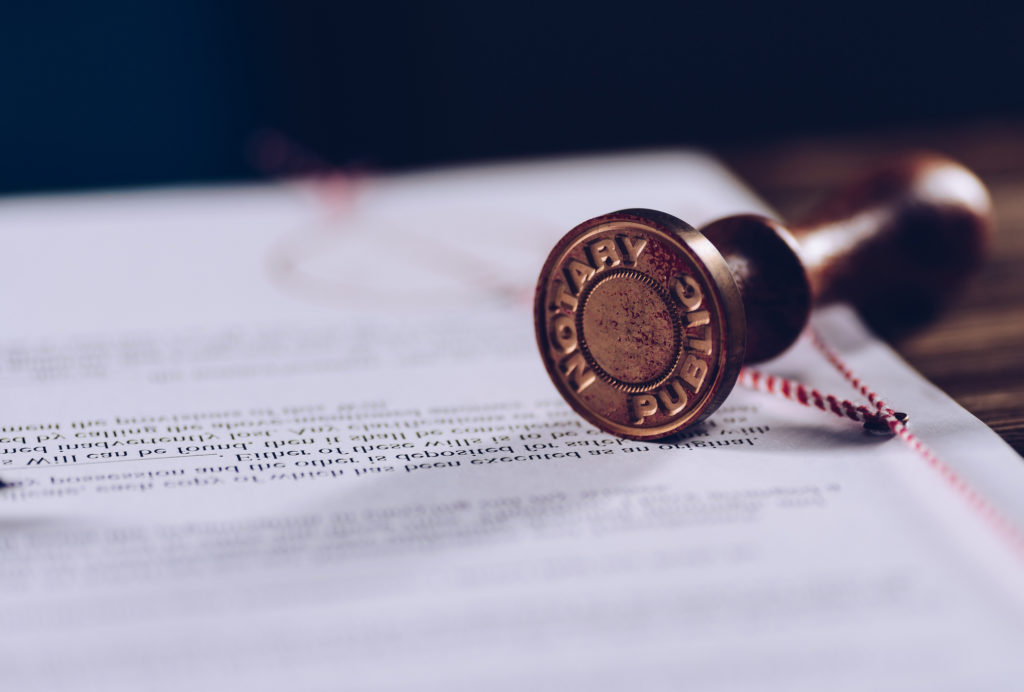Notary Public: Your Trusted Witness and Record Authenticator
Notary Public: Your Trusted Witness and Record Authenticator
Blog Article
Debunking Notarial Work: Simplifying the Function and Importance of Notaries
Their function, frequently shrouded in mystery for many, brings considerable weight in making sure the legitimacy and integrity of vital files. By deciphering the complexities bordering notarial techniques and dropping light on the significance of their acts, a more clear understanding emerges of the important function notaries play in maintaining the textile of lawful and legal contracts.
The Background of Notarial Job
The background of notarial job days back to old civilizations, where scribes played an important function in tape-recording vital info and authenticating papers. This led to the growth of notaries, individuals selected by the state to act as unbiased witnesses in lawful issues.
During the Middle Ages, notaries acquired prominence in Europe, with their features expanding to consist of composing lawful papers, certifying trademarks, and maintaining records. The increase of international trade better stressed the significance of notarial job in validating agreements and agreements throughout boundaries.
In the modern-day era, notaries remain to play a crucial role in lawful and business purchases by confirming identifications, confirming the credibility of files, and stopping fraudulence. Their duty in certifying the credibility of arrangements adds a layer of security and count on to the ever-evolving landscape of commerce and regulation.

Responsibilities and Obligations of Notaries
Notaries play an important role in confirming the credibility of papers and the identity of signatures. One of their main duties is to witness the finalizing of essential papers, such as acts, agreements, and wills, to ensure that all celebrations are getting in right into contracts knowingly and voluntarily.
They accredit copies of initial papers, giving assurance to institutions that the copies are real replicas of the originals. Generally, the obligations and obligations of notaries are important in protecting the integrity and legitimacy of numerous files and deals - Deceased Estate.
Notarial Certificates and Signatures
Exhibiting careful interest to information, notarial certificates and signatures function as crucial components in verifying the authenticity of legal records. Notarial certifications typically have important details such as the day of notarization, the names of the signatures, a summary of the record, and the notary's main seal. These certificates offer a clear record of the notarial act, making certain that the record can be easily recognized and mapped back to the notary who oversaw the procedure.
Signatures play a critical duty in notarial work, as they indicate the arrangement and consent of the events involved. Notaries thoroughly witness the signing click here now of records to verify the identity of the signatures and validate that they are signing of their very own free choice. By fastening their main seal and trademark to the paper, notaries certify that the essential treatments have actually been adhered to which the document is legitimate and enforceable.
Essentially, notarial certificates and trademarks are the characteristic of authenticity in lawful transactions, providing assurance to all parties entailed that the documents are reputable and binding.
Relevance of Notarial Acts
Notarization Refine Discussed
Describing the notarization process provides quality on the vital actions associated with confirming legal files. The notarization procedure commonly starts with the private presenting the document to a notary public. The notary after that confirms the signer's identification with appropriate recognition approaches. When the identification is verified, the notary guarantees that the specific authorizing the file does so willingly and with no coercion.

Conclusion

Notarial certifications generally have essential information such as the day of notarization, the names of the signatories, a summary of the document, and the notary's main seal. These certifications give a clear record of the notarial act, making sure that the paper can be easily determined and mapped back to the notary that managed the procedure.
By affixing their official seal and signature to the document, notaries license that the essential treatments have actually been complied with and that the file is legitimate and enforceable.
By verifying the identity of the signatories, validating their willingness to get in right into the contract, and certifying the date and location of the signing, notaries play a vital role in upholding the credibility of lawful papers.After the record is signed, the notary will certainly affix their main seal or stamp onto the paper.
Report this page